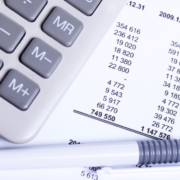What is GST (Goods and Service Tax) in Australia?
What is Goods and Service Tax in Australia?
GST stands for Goods and Services Tax. It is a broad-based consumption tax imposed on the supply of most goods, services, and anything else that is sold, leased, or hired in Australia. The GST was introduced in Australia on July 1, 2000, with the aim of simplifying the tax system and promoting fairness.
Under the goods and service tax system, businesses are generally required to register for goods and service tax if their annual turnover reaches a certain threshold. As of my knowledge cutoff date in September 2021, the threshold for goods and service tax registration is $75,000 in annual turnover for most businesses. However, certain businesses, such as taxi and limousine operators, have a lower threshold and are required to register for goods and service tax regardless of their turnover.
Once registered for GST, businesses are required to charge goods and service tax on the goods and services they sell to their customers, known as taxable supplies. They are also entitled to claim input tax credits for the goods and service tax they have paid on their business-related purchases and expenses. This allows businesses to offset the Goods and Service Tax they have collected with the GST they have paid, resulting in a net amount payable to or refundable from the Australian Taxation Office (ATO).
Businesses registered for Goods and Service Tax are required to lodge regular business activity statements (BAS) with the ATO, reporting their GST sales, GST purchases, and the amount of GST collected and paid. These statements help determine the net amount of goods and service tax payable or refundable.
It’s important to note that goods and service tax is a federal tax, and the rate of GST in Australia is currently set at 10%, calculated on the value of the taxable supply. However, certain goods and services may be exempt from goods and service tax or subject to a reduced rate.
How can businesses determine if they need to register for GST?
Businesses can determine if they need to register for goods and service tax in Australia by considering their GST turnover. GST turnover is the business income earned from taxable sales, excluding goods and service tax.
Businesses can check their goods and service tax turnover by calculating their sales for the current month and the previous 11 months, and adding up the amounts excluding goods and service tax. If the total is $75,000 or more, the business must register for goods and service tax.
It is recommended that businesses seek professional advice from a professional accounting service such as TAX123, to ensure they are meeting their goods and service tax obligations.








